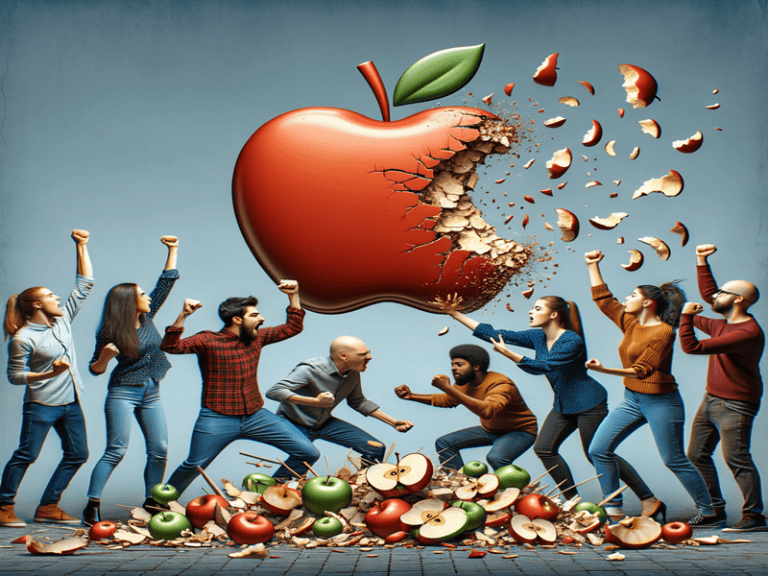For the upcoming European Digital Markets Act (DMA), Apple has to change the policies for its App Store and Safari browser. The proposed changes have been criticized by competitors Microsoft, Mozilla, Epic Games, and Spotify. The list of critics is likely to expand in the coming days. In general, it is said the changes are “as painful as possible” and a “complete and total facade”. Browser Opera, meanwhile, is among the first to put the rules to practice.
Last week, Apple announced which changes are coming to the App Store and Safari to align with the DMA. The European legislation is intended to ensure that every player in the market has a fair chance against Big Tech. As of March 7, violations are punishable for designated gatekeepers and associated services.
EU says to intervene
The App Store, iOS operating system and Safari browser are all Apple services included in the list. EU Commissioner Thierry Breton already reacted to Apple’s planned changes, gathering criticism from all corners: “If the proposed solutions are not good enough, we will not hesitate to act forcefully.”
For the assessment, the EU will consult third parties. Those parties already feel offended by Apple’s proposal. Based on that information, we think strong EU actions will come if Breton at least keeps his word. Although the DMA is supposed to address the power of Big Tech, the past has already proven that the EU does not always dare to express power vis-à-vis these companies.
Keep paying Apple
The policy causing the main criticism is the mandatory payment of 50 cents per app installed on an Apple device. This payment applies when the app offers a payment system that is not Apple’s. Regardless of whether that app was installed through the App Store or an alternative store.
There has been widespread misgivings about this mandatory payment. That’s because developers were hoping Apple could no longer get a cut of developers’ revenue once the DMA got installed. That sharing of profits is also known as the “Apple tax,” but Google is equally guilty of such practices through its Play Store. Both parties typically snatch 30 percent of the total amount the user spends in the app.
The practices were previously challenged in a lawsuit by Epic Games. Not surprisingly, this game developer is now criticizing Apple’s upcoming policy changes. The company’s CEO called the 50-cent payment a “junk fee”.
Also read: Will Apple and Google be forced to open up their app stores?
Spotify and the president of the Xbox division at Microsoft support that statement. It argues that the new fees are a form of “extortion”. The entire proposal of changes to the App Store is seen by the parties as a “complete and total farce” and “a step in the wrong direction”.
Despite developers’ hopes, Apple already made it clear when it announced the new policy that the company had no desire to help developers. “Under the new terms, more than 99 percent of developers would pay the same or less to Apple,” it said.
Duplication
For the other policies, the criticism is less heard but certainly not non-existent. Browser Mozilla spokesman Damiano DeMonte, in an interview with The Verge, expressed negative views on the ability of alternative browsers to push their product to Apple users. “We are still reviewing the technical details but are hugely disappointed with Apple’s proposed plan to limit the newly announced BrowserEngineKit to EU-specific apps.”
At issue is a change in which Apple will allow browser engines other than WebKit. That browser engine is what Apple uses to run its own browser, Safari. Apple will only allow this in Europe, where the DMA goes into effect. For developers, this amounts to duplication of effort: “The effect would be to force an independent browser like Firefox to build and maintain two separate browser implementations – a burden that Apple itself does not have to bear.”
Experiencing it firsthand
Browser Opera chooses to launch an iOS browser with its own engine anyway. As a European company, the company says it is happy to support the DMA. Opera is originally from Norway. “We plan to make this a reality with the AI-focused Opera One for iOS. In addition, we are pleased to see confirmation that Apple will also implement a browser selection screen for iOS, making it easier for users to choose their favourite browser by default, even on their mobile devices.”
The new browser is already expected to launch in March. So, the company seems fully prepared for the additional work it will get with this. However, it is clear that Opera also prefers a policy that is global in scope, as the company “strongly encourages Apple to implement these expanded freedoms for iOS users around the world.”
Also read: Apple succumbs to DMA and makes changes in iOS 17.4
Apple, as an app store and browser provider subject to the DMA, is the first to announce the planned changes for the upcoming legislation. The provider of social media platforms, Meta, is giving users more options regarding data privacy through the DMA. At Microsoft, in turn, they are tinkering hard with the Windows 11 operating system, which looks to soon have the ability to remove Bing and Edge. Clarification on exactly how the services of the gatekeepers indicated change will follow in March.
